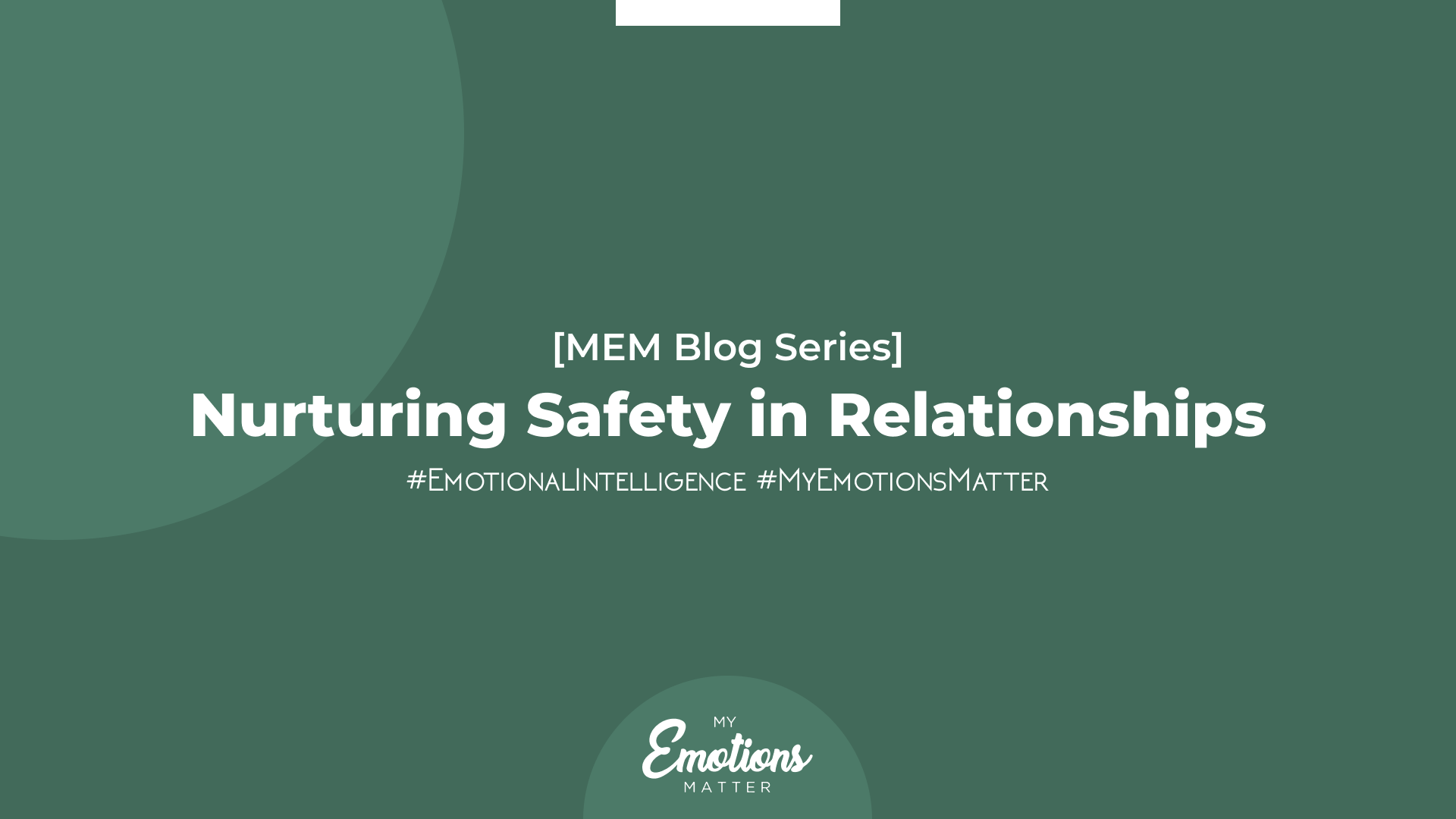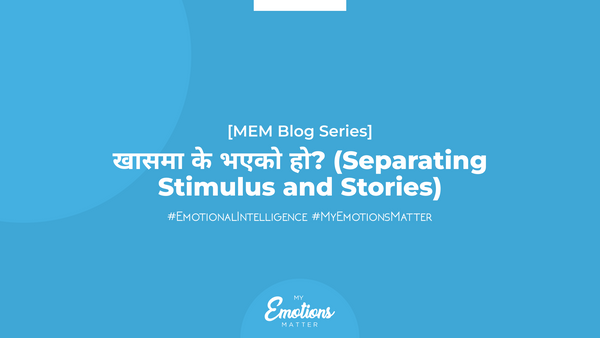Nurturing Safety in Relationships
Have there been moments in your life when you had certain thoughts and feelings but kept those to yourself? This could be a question you wanted to ask, a concern you wanted to voice out, an idea you wanted to share or a mistake you wanted to admit. You aren’t alone. As human beings, we have different thoughts and feelings but we don’t necessarily voice them. Why? The answer is simple: we fear being judged, humiliated or punished. This reluctance to speak or question can be referred to as 'psychological danger’.
Impact of psychologically unsafe environments
When operating from a perceived sense of psychological danger, we keep things to ourselves. While it may seem like a safer option in the short run, we risk growing resentful towards those we don't open up to. We may also risk compounding the adverse impact of our mistakes. Our ideas don’t find room to nurture and grow and curiosity slowly dies due to questions that remain unasked.
Psychological safety
The antidote is Psychological Safety: a climate for ‘interpersonal risk-taking’ like:
1. Asking questions
2. Raising concerns
3. Sharing ideas
4. Admitting mistakes
In psychologically safe environments, people don’t hesitate to say things like:
I don’t know
I made a mistake
I disagree
I have a concern
I have an idea
In psychologically safe teams, members don’t hesitate to speak up because they have a firm belief that what they say or do won't be held against them. An example could be a family where the head of the family can openly share their struggles, younger ones are encouraged to chip in with ideas, disagreements can be discussed healthily and there is a genuine openness to listen and understand each other better. All these behaviors are easier to exhibit because family members feel ‘safe’ around each other not just physically but also psychologically.
What are the benefits of psychological safety?
When people feel a sense of safety in groups, they are more likely to speak up. This means more inclusion. There’s minimization of errors as root cause of existing problems are openly discussed (as opposed to low accountability due to fear of punishment). There are also better chances of innovation as sharing ideas is actively encouraged.
Is psychological safety same as trust?
Although it might seem like it on the surface, psychological safety and trust are two different ideas. Let’s take an example. We might be going on a trek. On the inside, I’m struggling. I don’t think I can make it to the summit. I trust that my team will help me and not leave me behind. However, I might not feel safe to open up about my struggles because I fear they might make a joke out of my inability to walk as easily as them. Also, trust is more concerned with how one individual thinks about another; whether one person can rely on another or not. Psychological safety is more of a group dynamic- whether all members in a team feel safe or not sharing their concerns, questions, ideas or mistakes.
Ensuring psychological safety
To ensure psychological safety, we have to make sure we start from the root level, i.e. in making team members feel they belong. Only when they feel they belong, are they likely to then engage in other ways like asking questions and contributing their ideas. As defined by Timothy R. Clark, there are four stages of psychological safety:
Inclusion Safety: This is stage one safety where members feel they belong in the team.
Learner Safety: This is stage two where members feel safe to ask questions.
Contributor Safety: This is stage three where members feel safe to share their ideas and opinions.
Challenger Safety: This is stage four where members feel safe to challenge existing rules and norms.
Reflection Questions:
1. What are some behaviors of others that make you feel psychologically unsafe around them?
2. What are some ways you try to ensure you're contributing to psychological safety in your family/work team?




